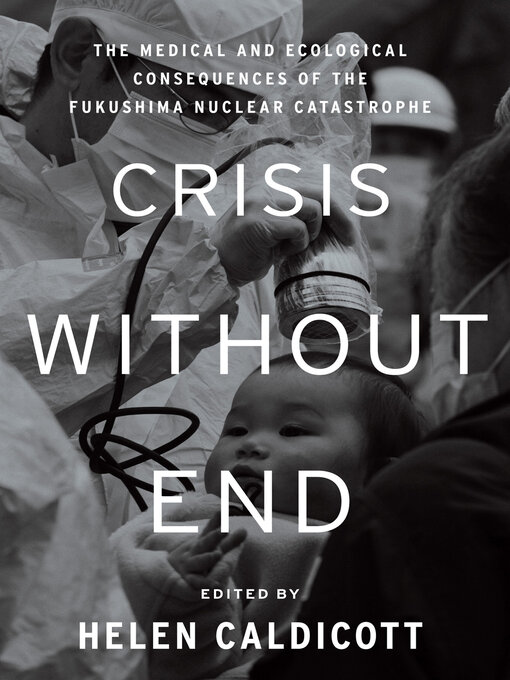Crisis Without End
The Medical and Ecological Consequences of the Fukushima Nuclear Catastrophe
On the second anniversary of the Fukushima disaster, an international panel of leading medical and biological scientists, nuclear engineers, and policy experts were brought together at the prestigious New York Academy of Medicine by Helen Caldicott, the world’s leading spokesperson for the antinuclear movement. This was the first comprehensive attempt to address the health and environmental damage done by one of the worst nuclear accidents of our times.
A compilation of these important presentations, Crisis Without End represents an unprecedented look into the profound aftereffects of Fukushima. In accessible terms, leading experts from Japan, the United States, Russia, and other nations weigh in on the current state of knowledge of radiation-related health risks in Japan, impacts on the world’s oceans, the question of low-dosage radiation risks, crucial comparisons with Chernobyl, health and environmental impacts on the United States (including on food and newborns), and the unavoidable implications for the US nuclear energy industry.
Crisis Without End is both essential reading and a major corrective to the public record on Fukushima.
-
Creators
-
Publisher
-
Release date
October 21, 2014 -
Formats
-
Kindle Book
-
OverDrive Read
- ISBN: 9781595589705
-
EPUB ebook
- ISBN: 9781595589705
- File size: 3603 KB
-
-
Languages
- English
-
Reviews
-
Publisher's Weekly
August 18, 2014
Caldicott, cofounder of Physicians for Social Responsibility and renowned antinuclear advocate, has not softened her position on nuclear energy dangers, so readers of these essays by scientists and officials should expect grim news. The collection is scattered at times, but no less unsettling for it: several authors ignore Fukushima and discuss Chernobyl or the general dangers of radiation. Caldicott herself notes that only two sources have released more radioactivity into the atmosphere than Fukushima: two decades of nuclear-bomb tests in the 1950s and ’60s, and the Chernobyl meltdown. However, unlike Chernobyl, Fukushima’s reactors were state-of-the-art, well maintained, and employed the latest safety technology. A short, gripping account addresses the disaster—which will cause harm for centuries—and Japanese officials report on the disgraceful response of their government. Several researchers discuss effects of radiation on food, wildlife, cancer incidence, and the nuclear power industry itself. Many want nuclear power abolished, emphasizing that it remains wildly expensive and prone to mishaps. The book’s tone is relentlessly apocalyptic and the essays point to renewable energy (expensive and not environmentally benign) as the solution for the future; readers may want to consult James Mahaffey’s Atomic Accidents as a primer. Graphs, charts, & illus.
-
Formats
- Kindle Book
- OverDrive Read
- EPUB ebook
subjects
Languages
- English
Loading
Why is availability limited?
×Availability can change throughout the month based on the library's budget. You can still place a hold on the title, and your hold will be automatically filled as soon as the title is available again.
The Kindle Book format for this title is not supported on:
×Read-along ebook
×The OverDrive Read format of this ebook has professional narration that plays while you read in your browser. Learn more here.

